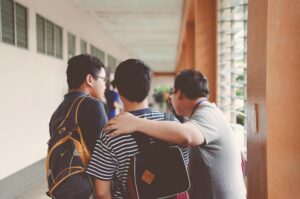|
Case Study 1 Title: |
Zero food waste education of “Z” generation of European citizens |
|
Country of implementation: |
Estonia, Croatia, Serbia, Italy, Romania |
|
Type of the practice: |
Educational project for young people |
|
Type of education (primary, secondary, non-formal): |
Universitites and secondary schools |
|
Age of participants: |
18-24 |
|
Education form (online, offline, or blended): |
Online and offline |
|
Link: |
https://zeewaste4.eu/ |
|
The objective of this project is to instigate and maintain behavioral change aimed at preventing and reducing food waste on both personal and collective levels among young people. These individuals, who will soon assume roles as valuable members of society, have responsibilities as family members and household owners. The self-assessment method involves monitoring the frequency of food waste for different food groups and reporting the amount of waste each time food is discarded. Students are required to maintain a 7-day food waste diary, recording waste from each meal. Conducting the survey over a typical week (7 days) provides the best measurement of food waste at home. Ideally, the survey should be completed in one week, but if there are breaks due to special occasions (birthdays, other celebrations), the measurement can be continued the next day. After completing the diary for 7 consecutive days, students should send it, along with photos of the meals (before and after), to the country coordinator’s email address for further analysis. |
SWOT ANALYSIS OF CASE STUDY 1:
Strengths (internal factors):
- Actual reduction of food waste, as students become more aware about FW problem at the end of this practice.
- Use of newly developed software to assess the amount of food waste on students’ plates.
- Implementation of a learning-by-doing approach to enhance critical and analytical thinking among students.
Weaknesses (internal factors):
- It was challenging to encourage student participation in the challenge due to its relatively lengthy duration (1 week) and the substantial effort required (capturing at least 6 pictures each day).
- The voluntary nature of participation possibly introduced bias, as students already environmentally conscious were more likely to participate in the challenge compared to those less concerned about their environmental impact.
7
Futures Literacy on Food Nutrition and Sustainable Food Systems for School Education
- The research results might lack neutrality due to some participants intentionally altering their food waste production habits as a result of their participation in the research.
- The human factor posed a significant issue as participants frequently forgot to take pictures, despite consistent reminders.
- The analysis did not extensively address the potential impact of different types of food waste (e.g., vegetables or meat) on the outcomes.
Opportunities (external factors):
- This activity has increased awareness and promoted behavioral changes to reduce food waste, encouraging students to make more sustainable decisions in their daily lives.
- This activity can be easily replicated in other regions/countries and adapted for different stakeholders.
- The activity might be further developed, for example, a “sustainable diet challenge” could educate young individuals about environmentally friendly food choices, contributing to their knowledge of sustainable consumption.
Threats (external factors):
- When replicating this practice, analyzing the collected data might require the use of licensed software, which could pose difficulties due to limited accessibility.
- The activity requires some (at least minimal) funding and human resources.
|
Some insights from conducted interviews: From students’ perspective: “The Zeewaste4EU project empowered me personally by making me reflect on my daily food waste. The 7-day challenge, where I took photos of my plate, revealed how much food I was wasting. This prompted me to think about the reasons for food waste and find ways to minimize it”. “One of the strengths of this challenge was organizing my mindset to align with the necessities of food consumption, fostering a passion for preparing and consuming food in a way that minimizes waste”. From teachers’ perspective: “This activity aimed to gather unique data about food waste generation among young people in various European countries. Additionally, it aimed to raise awareness about food waste and, ideally, contribute to reducing its occurrence“. |







